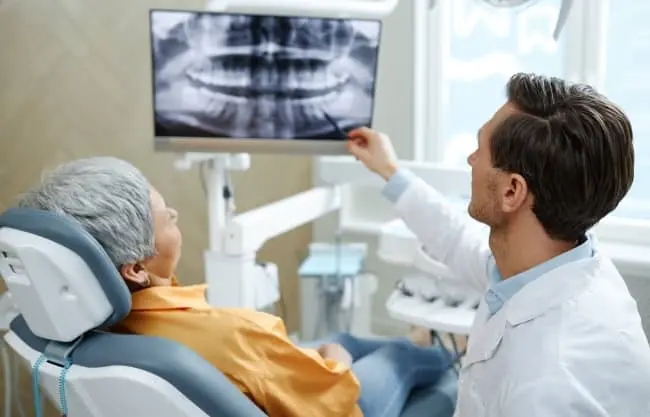
Older Adults Who Lose Teeth Faster Face Higher Death Risk
A new study has revealed a concerning link between rapid tooth loss in older adults and an increased risk of death from all causes, underscoring the powerful connection between oral health and overall well-being. The findings suggest that how quickly someone loses their teeth may be an important indicator of declining systemic health — and not just a dental issue.
A Deeper Look at the Research
The study, published in Scientific Reports, followed a large group of older adults over several years, tracking both their oral condition and general health outcomes. Researchers discovered that those who experienced faster-than-average tooth loss were significantly more likely to die during the observation period, even after adjusting for factors like age, sex, income, smoking status, and pre-existing diseases.
Unlike earlier studies that simply counted the number of missing teeth, this research focused on the rate of tooth loss — providing a more dynamic view of oral health decline. A rapid reduction in tooth count may point to worsening oral inflammation, nutritional deficiencies, or undetected systemic illnesses such as diabetes or cardiovascular disease.
Why Rapid Tooth Loss Matters
Tooth loss is often viewed as a local problem, but it reflects a complex interaction of biological, behavioral, and socioeconomic factors. Several mechanisms could explain the connection between rapid tooth loss and mortality risk:
Inflammation and systemic disease: Periodontal disease — a major cause of tooth loss — triggers chronic inflammation that can damage blood vessels and organs over time.
Nutritional impact: The inability to chew effectively can lead to a softer, less nutritious diet, increasing the risk of frailty, cognitive decline, and metabolic disease.
Shared risk factors: Lifestyle habits such as smoking, poor oral hygiene, or limited healthcare access may accelerate both dental deterioration and overall health decline.
Microbiome disruption: Oral bacteria associated with gum disease can enter the bloodstream, contributing to conditions like heart disease or stroke.
Implications for Dentistry and Medicine
For dental professionals, the study highlights the importance of viewing tooth loss as a potential marker for systemic health decline. Rapid or unexplained tooth loss in elderly patients should trigger broader health assessments and interprofessional collaboration. Dentists can play a vital role in identifying early signs of chronic illness through regular oral evaluations.
In practical terms, clinicians should:
Record not only the total number of missing teeth but also the pace of loss.
Encourage patients to maintain consistent oral hygiene and routine check-ups, even into advanced age.
Communicate with physicians if patients present with unusual or rapid oral deterioration, as this may indicate underlying metabolic or cardiovascular issues.
Meanwhile, for the general public, the takeaway is clear: oral health is whole-body health. Taking care of your teeth — through daily brushing, flossing, healthy eating, and professional cleanings — isn’t just about aesthetics or comfort. It’s about longevity.
The Broader Message
The researchers caution that while the findings demonstrate a strong statistical association, they do not yet confirm a direct cause-and-effect relationship. More long-term studies are needed to clarify whether slowing tooth loss could directly improve survival outcomes. Nonetheless, the message is significant: maintaining natural teeth and preventing periodontal disease could be as vital to overall health as managing blood pressure or blood sugar.
This growing body of evidence continues to strengthen the argument that dentistry and medicine must work hand in hand. As populations age, proactive oral healthcare could become a key component of preventive medicine — not only preserving smiles but also extending lives.
Original Article
Title: Tooth Loss Progression in Old Age Linked to Higher Risk of Death, Study Finds
Published: Oral Health Group – October 21, 2025